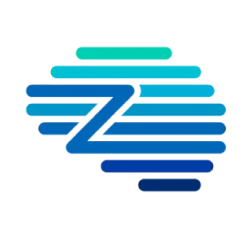You’re in the market for a new procurement solution. You’ve seen the shiny brochure, experienced a ‘tailor-made demo’ showing you everything on offer, heard the alluring sales pitch, your procurement are all-in, and now you’re considering that all-encompassing procurement software – the one promising to manage everything from paperclips to paychecks.
It may sound too good to be true, and it probably is, so before you sign on the dotted line, let’s peel back the layers and see what’s really going on.
The Compelling Case for Source-to-Pay Simplicity
The Siren Song of “Everything-in-One”: A Façade of Efficiency? Mega-vendors, fueled by acquisition sprees, now peddle a buffet of modules: inventory, temp workers, travel, raw materials. Sounds like a one-stop shop, right? Not quite. While the sheer breadth may seem tempting, a closer look reveals a potential pitfall: losing sight of the core.
Indirect vs. Direct: Where Focus Reigns Supreme There’s 2 types of spend at any organization – direct and indirect. Direct spend is what organizations spend on their core offerings – raw material costs, direct inputs, etc.
Read our blog on: Your Guide to Direct Spend Management in Procurement Process.
Indirect spend is everything else. These are the operational essentials that keep the wheels turning – office supplies, maintenance, IT services. While the direct spend is almost always optimized to within an inch of its life, leaving very little room for further savings, indirect often takes a backseat.
Read our blog on: Mastering Indirect Spend Six keys to success.
However, the heart of strategic sourcing lies in indirect goods and services – the domain of the Chief Procurement Officer (CPO). Managing them effectively requires specialized expertise and purpose-built tools, honed to streamline requisitioning, negotiation, supplier relationships, and supplier engagement.
The Fork in the Road: CPOs vs. Supply Chain & HR Heads Direct materials and HR-related functions like contingent workforce are different beasts altogether. They fall under the purview of supply chain heads and HR, requiring distinct skills and workflows. Forcing these disparate domains under one umbrella creates a clunky chimera, potentially hindering each individual function.
Focusing on collaboration, companies and suppliers can work together towards common goals such as product innovation, quality improvement, and supply chain resilience . Our source to pay software and supplier sourcing solutions benefit finance, accounting, and procurement professionals across various industries by giving them the control they need without the inefficiencies.
The Delusion of Synergy: Why a Jack-of-All-Trades is a Master of None Vendors paint a picture of seamless integration, where data flows effortlessly across modules, yielding unparalleled insights and cost savings. But reality is a messy canvas – a Jackson Pollock intertwined with a Claude Monet. But reality often paints a different picture. Data orchestration within and across modules is still a tall ask for most software vendors. Forcing different systems together, each with its own quirks, can be a costly nightmare. The promised efficiency gets lost in a maze of compatibility issues, and data headaches, diluting the value proposition.
Focus, Not Fatigue: Why Specialization Breeds EfficiencyInstead of chasing the “everything-in-one” mirage, invest in best-in-class solutions tailored to your specific needs. Think of it as having a chef’s knife for chopping vegetables and a whisk for whipping cream – each tool excels at its own task. These specialized solutions, built by experts in their fields, offer deeper functionality, richer data, and agility that lets you optimize each area like a pro. True procure to pay mastery lies in optimizing core procurement processes, not chasing the mirage of comprehensive sprawl. Keep it simple, keep it focused, and watch your source-to-pay efficiency soar.
But Why? Why Do Vendors Push What You Don’t Need? Several factors come into play:
- Quotas and Commission Structures: Sales teams often have ambitious quotas and supplier performance-based incentives. Pushing more modules, even if unnecessary, becomes a way to meet these targets.
- Fear of Missing Out (FOMO): Vendors play on your fear of being left behind by promoting the “comprehensive suite” approach. They might highlight competitors who have adopted the full package, implying that you’ll be at a disadvantage if you don’t follow suit.
- Lack of Domain Expertise: Some vendors are more focused on selling software than understanding your specific business needs. They might not have the expertise to differentiate between core requirements and unnecessary add-ons.This especially happens with AI-washing. Vendors show a quasi-AI offering, and when you pull back the curtain, you’ll be lucky if it’s lipstick on a pig.Work with experts who can determine what exactly your organization needs, and if your vendor is capable of providing it.If you want to see real AI in action, check out the Merlin AI Experience Center, and avail yourself of a sandbox experience like no other.
It is hardly surprising that only 45% of software projects deliver or exceed their expected return on investment (ROI), according to a new survey of CIOs from digital adoption platform Userlane and consultancy PwC.
Seeing Through the Smoke and Mirrors: How to Be a Savvy Buyer
Don’t fall prey to the “everything-in-one” trap. Here’s how to be a discerning buyer:
- Clearly Define Your Needs: Before venturing into the software jungle, map out your core procurement processes and identify the functionalities you truly need. This will serve as your compass to navigate the vendor maze. Deliberately under-engineer the requirements, if needed, to avoid over-engineering.
- Resist the Allure of Completeness: Don’t get swayed by the promise of a one-stop shop. Remember, jacks-of-all-trades are often masters of none. Focus on solutions that excel in your specific areas of need.
- Ask Tough Questions: Don’t be afraid to challenge the vendor’s recommendations. Ask for concrete examples of how each module benefits your specific use case. Request data and case studies to validate their claims.
- Don’t Be Afraid to Walk Away: If a vendor pushes modules you don’t need or refuses to tailor their offering to your specific requirements, thank them for their time and move on. There are plenty of other options out there, and the right vendor will respect your needs and budget.
Seeing Through the Smoke and Mirrors: How to Be a Savvy Buyer
Don’t fall prey to the “everything-in-one” trap. Here’s how to be a discerning buyer:
Real-World Success Story: Delta Air Lines
Delta Air Lines significantly enhanced its supply chain efficiency by adopting Zycus’ Source-to-Pay Platform.
Remember, true procurement efficiency comes from laser-focused solutions, not bloated software suites. Be a savvy buyer, resist the FOMO, and invest in tools that empower your core processes, not your vendor’s bottom line.
Bonus Tip: Leverage independent analyst reports and user reviews to get unbiased insights into different procurement software vendors and their offerings.
By equipping yourself with the right knowledge and a healthy dose of skepticism, you can navigate the murky waters of procurement software and emerge with a solution that truly fits your needs, not your vendor’s pockets. So, keep it simple, keep it focused, and watch your source-to-pay efficiency soar!
For a simple and smart demo, schedule some time with our experts, and make 2024 count!
Related Reads:
- 5 Key Benefits of Source-to-Pay Automation
- Demystifying Source-to-Pay: A Manual for the Modern Procurement Era
- Source to Pay: An Actionable Roadmap
- A CPO’s Ultimate Guide to Selecting the Right Source-to-Pay System
- White Paper: Essential Source-to-Pay KPIs, Implementation Mindfulness & Benchmarking
- White Paper: 8 Reasons to go for Integrated Source-to-Pay Suite
- Tech Watch: Integrated & Intelligent Source-to-Pay
- White Paper: Source-To-Pay Transformation With AI And RPA
- Press Release – Zycus and SIG hosted webinar identifies and quantifies Source-to-Pay Synergies






































